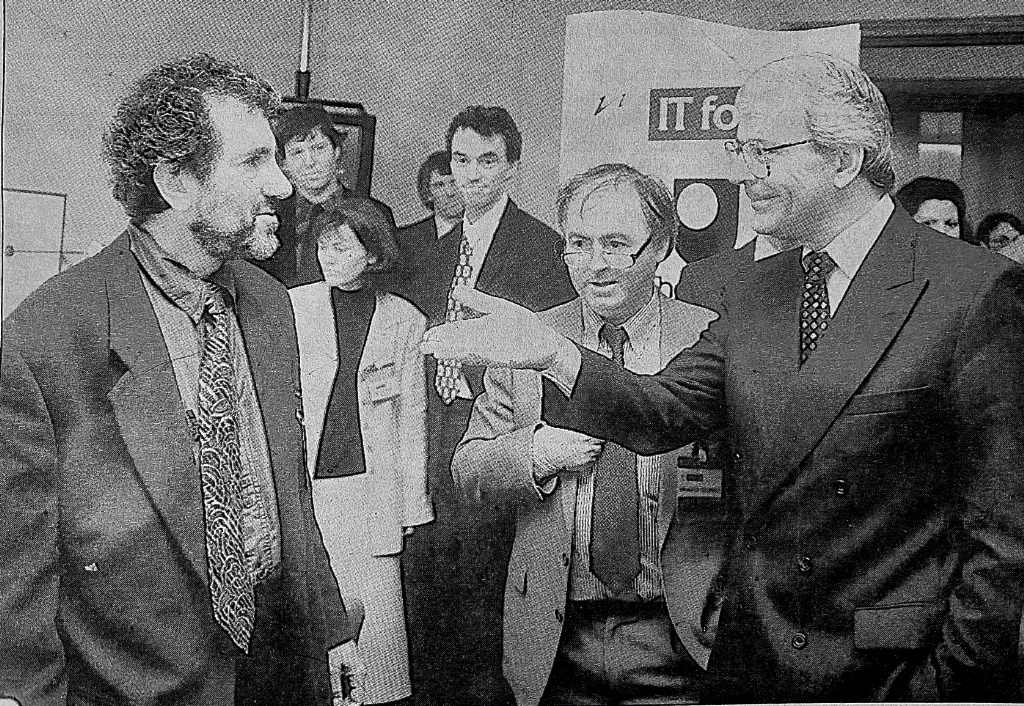Bath time, West London
Quote of the Day
”I played the young Earl of Dudley and was beheaded in the third reel — not, in my opinion, a moment too soon.”
- John Mills, on his role in the 1936 film, Tudor Rose.
Musical alternative to the morning’s radio news
Bob Dylan | Like A Rolling Stone | Live at Newport 1965
Long Read of the Day
Critical Thinking isn’t Just a Process: Authoritarian muscle memory and the twists and turns of lying
Another fabulous essay by Zeynep Tufecki in which she uncovers the ambiguities in the accounts of Trump’s brush with Covid.
One of the things I noticed throughout the past year has been that a lot of my friends who had grown up in authoritarian or poor countries had a much easier time adjusting to our new pandemic reality. My childhood was intermittently full of shortages of various things. We developed a corresponding reflex for stocking up on things when they were available, anticipating what might be gone soon. That was quite useful for the pandemic. So was trying to read between the lines of official statements—what was said and what was not, who was sitting with whom on the TV, and evaluating what the rumor networks brought in. It turns out those are really useful skills when authorities are lying at all levels.
Terrific from beginning to end.
What is it with billionaires and Mars?
Adam Curry has a nice post about this.
It is hard to talk about Mars these days without noticing that it has become a fixation for those Silicon Valley billionaires who seem to think it’s going to be a solution to the pressing questions of the ‘Grand Problematique’ that we have here on our current planet. Elon Musk is probably the poster child here, although Bezos and Branson are also playing around with space. Musk’s SpaceX corporation explicitly talks about colonising Mars. (Its four minute promotional video is here). If a goal is a dream with a deadline, SpaceX has even set some pretty aggressive deadlines: sending a cargo ship to the planet by next year, humans by 2024.
That’s not going to happen, of course: the launch window only comes round every 26 months, for one thing, and there is a huge range of technological issues still to overcome. But even more cautious observers think we might only be 10-15 years away from a manned flight to the planet. And in the meantime the Off-World project, run by Proudly Human, is conducting a series of extreme habitation experiments on earth to learn about how best to prepare for extreme conditions on the Moon and Mars.
Adam also quotes Jim Adams (ex-NASA) comparing where we are with space exploration at present with the early days of global exploration:
“The best way to look at it is, if we were to compare where we are in terms of space travel to the days when Europe was dominating the oceans, you know, the Spanish galleons and that sort of thing; we’re still looking at how to build good canoes.”
I have a theory about this hubris. Great wealth does strange things to people — and to those around them. It’s a combination of aphrodisiac and reality-distortion field. Immensely rich (or powerful) people think they are rich (or powerful) because they’re very special. And the people around them think that if someone is immensely rich or powerful they must be smart. And so there’s a kind of positive feedback loop that intensifies with time.
That’s bad enough when the wealthy are middle-aged. But when the money arrives at a point when the recipient is barely out of short trousers — as, for example, with some of the Silicon Valley crowd, then not only do they think they’re geniuses, but so too do those around them, not to mention the journalists who fawn upon them. Live like that for a while and you go bananas.
That’s why political leaders go crazy after a while. They’re surrounded by people who admire them, or look as if they do.
I once had an interesting demonstration of this.
In early 1996 I was given the job by my university of explaining the World Wide Web to the then UK Prime Minister, John Major. We set up a networked computer in the bowels of the Department of Trade and Industry in London and at the appointed hour the swing doors opened and in came the PM, flanked by four cabinet ministers and a cohort of minders, personal assistants and sundry satraps. (The government was launching some daft IT initiative later in the morning.) I greeted him and explained what we’d been asked to do, answered his questions about what one could do with the web (charmingly, he wanted to see if you could find furniture on it) and so on. While one of my colleagues guided him through the idea of a search engine etc. I noticed that everyone around was smiling. And I remember thinking that this is how every day is for him. Same goes for the super-rich. No wonder they go nuts.
The amazing thing about Major, though, is that he didn’t go crazy (unlike Thatcher before him and Blair afterwards). In fact he remained a perfectly normal person. On the day after his 1997 defeat, for example, he went off to watch cricket at the Oval.
Australia vs Facebook: Who won?
Nic Stuart (one of our Press Fellowship’s alumni) has a pretty good answer in his column in the Canberra Times: What’s most important, he writes, is that the ‘agreement’ between the government and Facebook
sets an atrocious precedent: Facebook chooses the news you see and Zuckerberg will decide how it distributes the pittance it decides is “appropriate”.
Labor’s hitching a ride because it’s not interested in real reform. The last thing it wants is to get Facebook, or big media, offside before the coming election. But the biggest joke of all is hidden in plain sight. This legislation allows the Treasurer to decide if the deals between Facebook and the media companies represent “a significant contribution” to the sustainability of news.
That’s why Facebook’s on top of the winners podium. Its business model is secure and untouched. Shuffling in second are the lethargic, old media; behemoths getting money for nothing. Third is the government with Frydenberg [Australia’s Treasurer] given the chance to regale everyone at dinner parties about how he “faced down” Zuckerberg over six telephone conversations.
So who’s lost? Well you, obviously, but at least you’re not coming last. That place is reserved for journalism.
Great column.
Incidentally Rasmus Kleis Nielsen, Director of the Reuters Institute at Oxford, has a very good analysis of this on the The Lawfare podcast. Well worth a listen.
Other, hopefully interesting, links
This blog is also available as a daily email. If you think this might suit you better, why not subscribe? One email a day, delivered to your inbox at 7am UK time. It’s free, and there’s a one-click unsubscribe if you decide that your inbox is full enough already!


